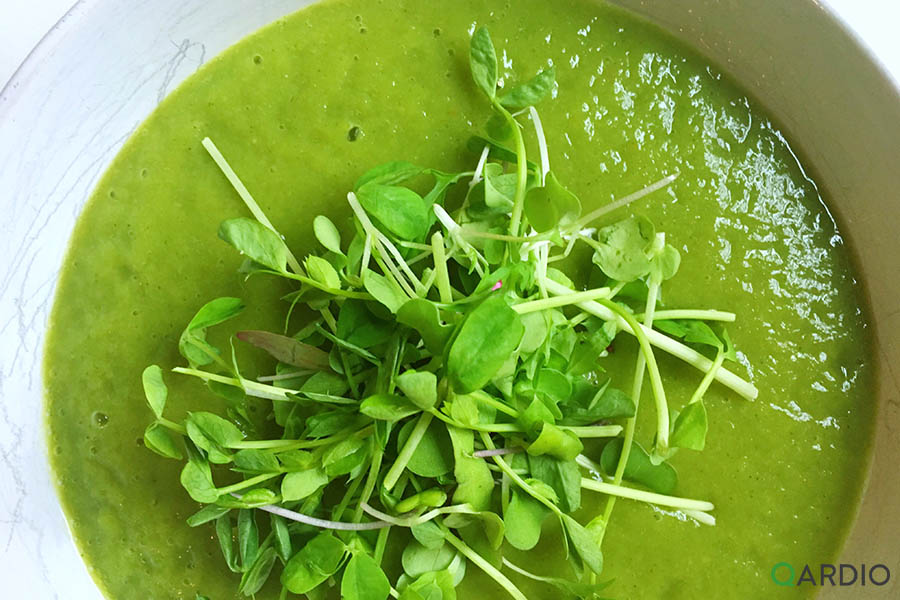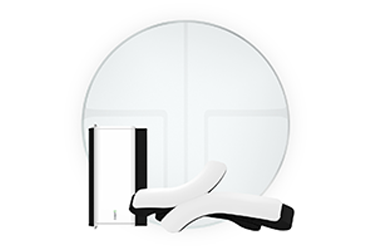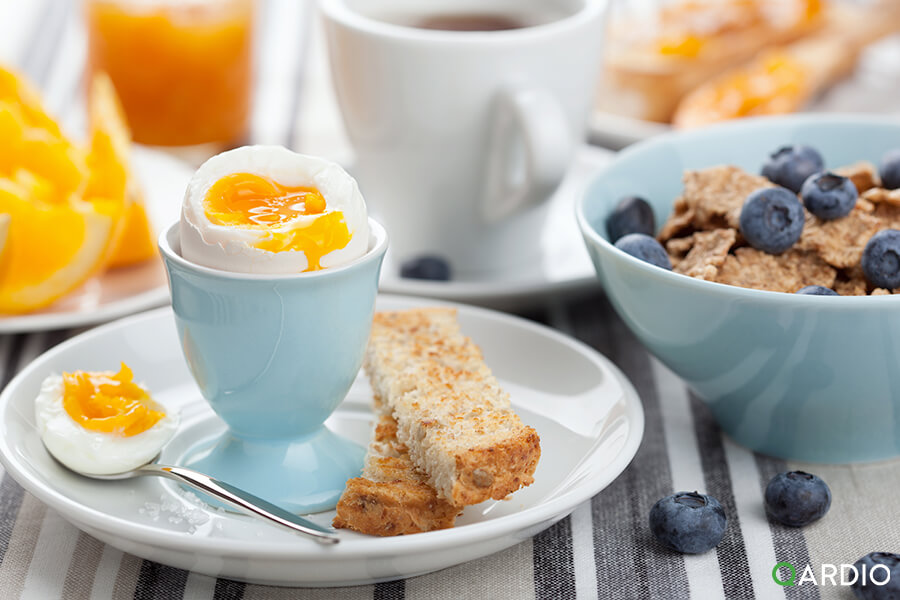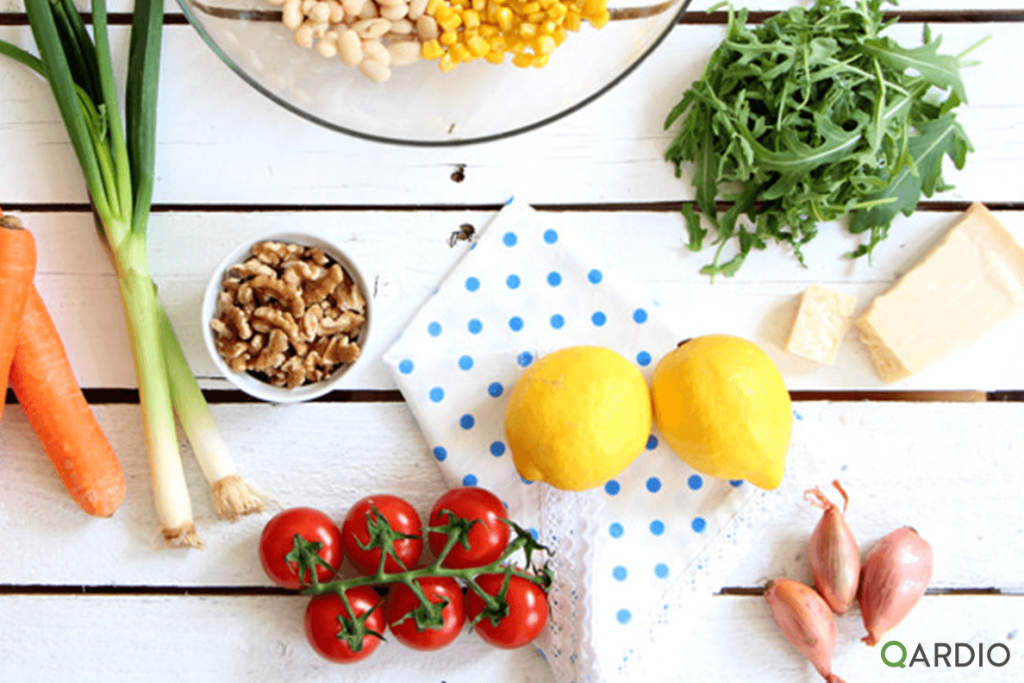If you are one of the more than 75 million Americans with high blood pressure, you won’t necessarily end up on medication. Lifestyle changes – like what you eat – make a big difference. Here are nine foods that have been proven to reduce blood pressure and improve heart health, according to clinical research. Bonus: they taste great!
How can I lower my pressure naturally?
Although having high blood pressure depends on numerous factors (lifestyle, diet, age, genetics, and more), there are some best practices you can follow to lower your blood pressure. Many health specialists recommend exercising regularly, reducing alcohol, keeping a healthy diet and removing ultra-processed food, and sleeping 7 to 8 hours per day. In this opportunity, we will cover which foods can help you lower your blood pressure.
What can I eat to lower my blood pressure?
1. Potassium-Rich Foods
Foods that are high in potassium, such as spinach and bananas, have been shown in studies to reduce blood pressure. Potassium helps the kidneys flush sodium out of our systems, which in turn, can cause our blood pressure to decrease. Some other high-potassium foods to try: sweet potatoes, avocados, swiss chard, and white beans. Try a smoothie with banana, spinach and avocado for a potassium-rich breakfast or snack!
2. Fatty Fish
Studies have shown that eating omega-3-rich fish, like salmon or mackerel, or taking fish oil pills, can decrease blood pressure and prevent the onset of hypertension. When shopping for salmon, always opt for wild when possible to avoid contaminants and pollutants that can be present in farm-raised fish. Try roasting it in the oven and topping it with an herb-filled pesto!
3. Beets
Beets pack quite a nutritional punch—they help reduce blood pressure, have anti-inflammatory properties, and have even been found in studies to improve athletic performance. Beets are high in nitrates, which are converted to nitric oxide once digested. Nitric Oxide helps blood vessels dilate, which in turn reduces blood pressure. Try roasting beets and adding them to salads, adding them to juices, or try this raw beet carpaccio.
4. Pomegranate
A 2017 meta-ANALYSIS of 8 clinical studies determined that pomegranate juice had a significant impact on blood pressure. Try adding frozen pomegranate seeds to your smoothie, or sprinkle fresh seeds on yogurt or salads. If opting for pomegranate juice, be sure to choose one with no added sugar.
5. Berries
You’ve probably heard by now that berries contain powerful antioxidants, but did you know they have also been shown to decrease blood pressure and relax the arteries? Anthocyanins, the compound that give blueberries their blue color, may have blood pressure reducing properties according to recent studies. Frozen wild blueberries are easy to keep on hand to add to smoothies, or try slicing up fresh berries on yogurt, granola, or salads.
6. Olive Oil
Healthy fats are an important part of a heart-healthy diet, and olive oil may be one of the most powerful foods in the world when it comes to health and longevity. Olive oil is packed with antioxidants and polyphenols that have various health benefits, including the reduction of blood pressure. Cooking veggies with olive oil also allows our bodies to absorb fat-soluble vitamins K, A, D and E. When shopping for olive oil, quality is important. Olive oils on the market are often heated or diluted, which causes them to lose their potent polyphenols—always opt for a quality Extra-Virgin Olive Oil for maximum health benefits.
7. Pistachios
Not only are they a delicious high-protein, high-fiber snack that will keep you full, but in several studies exploring the impact of nuts on blood pressure, pistachios were the clear winner. Eat them as a snack, or try adding them to salads or pestos.
8. Flaxseeds
Several studies have shown that flaxseeds are a powerful superfood when it comes to reducing hypertension. They contain, α-linolenic acid, an essential omega-3 fatty acid, which has been found to reduce blood pressure, improve cardiovascular health, and reduce stroke risk. Keep flaxseeds in your fridge to prevent them from going rancid, and sprinkle them in salads, smoothies, or baked goods.
9. Dark Chocolate
Good news for chocolate lovers! Dark chocolate is rich in antioxidants and polyphenols, and has been shown in some studies to reduce blood pressure. Dark chocolate has also been shown to reduce LDL cholesterol, making it a heart-healthy snack. Stick to smaller amounts, and choose a dark chocolate that has at least 70% cocoa content.
How to start adding these foods to your diet
If it feels overwhelming to get all of these foods on your plate, start by ditching the processed, pre-packaged snacks, which can contain whopping amounts of sodium. Instead, keep whole foods like blueberries, pomegranate seeds, spinach and flaxseeds in the fridge to throw into a salad for a quick meal. Add some extra-virgin olive oil and lemon juice and you’ve got a heart-healthy and delicious meal in under 10 minutes!
Guest Blog Post by Kate Hinman.
Kate Hinman is a certified Integrative Nutritionist, attorney, and owner of Kate Hinman Wellness. You can find her at @katehwellness and www.katehinman.com




